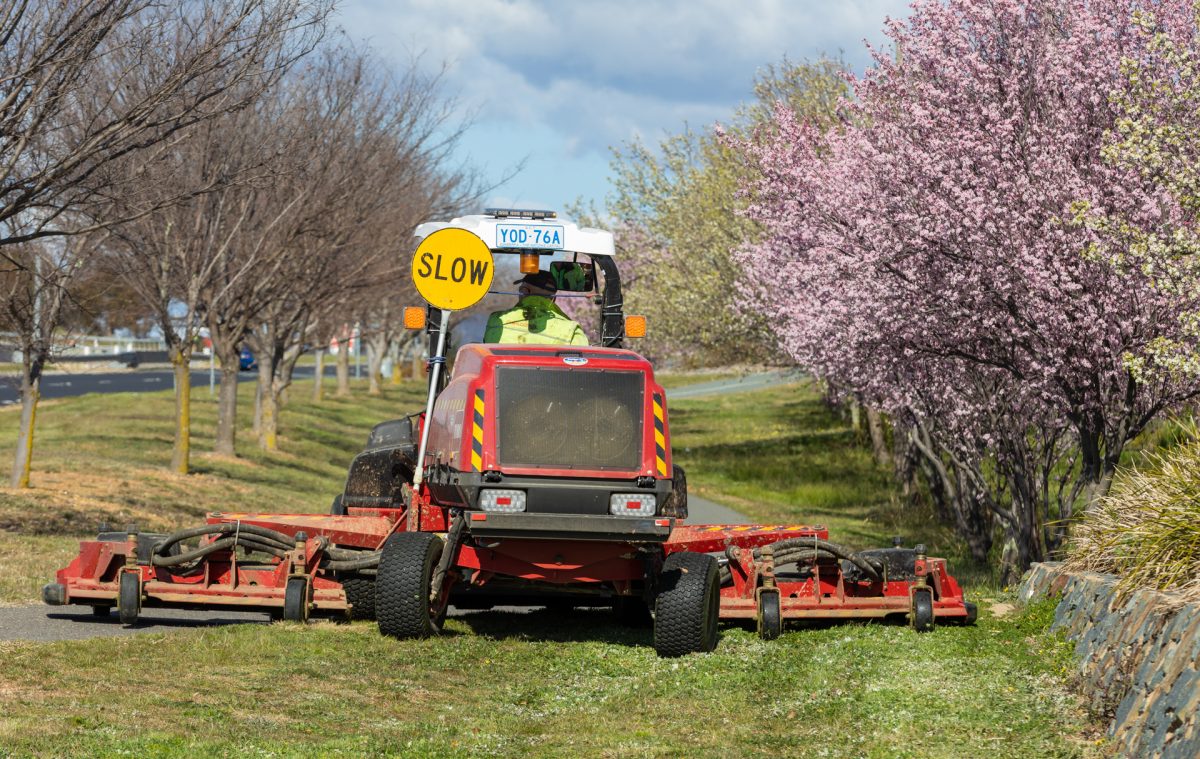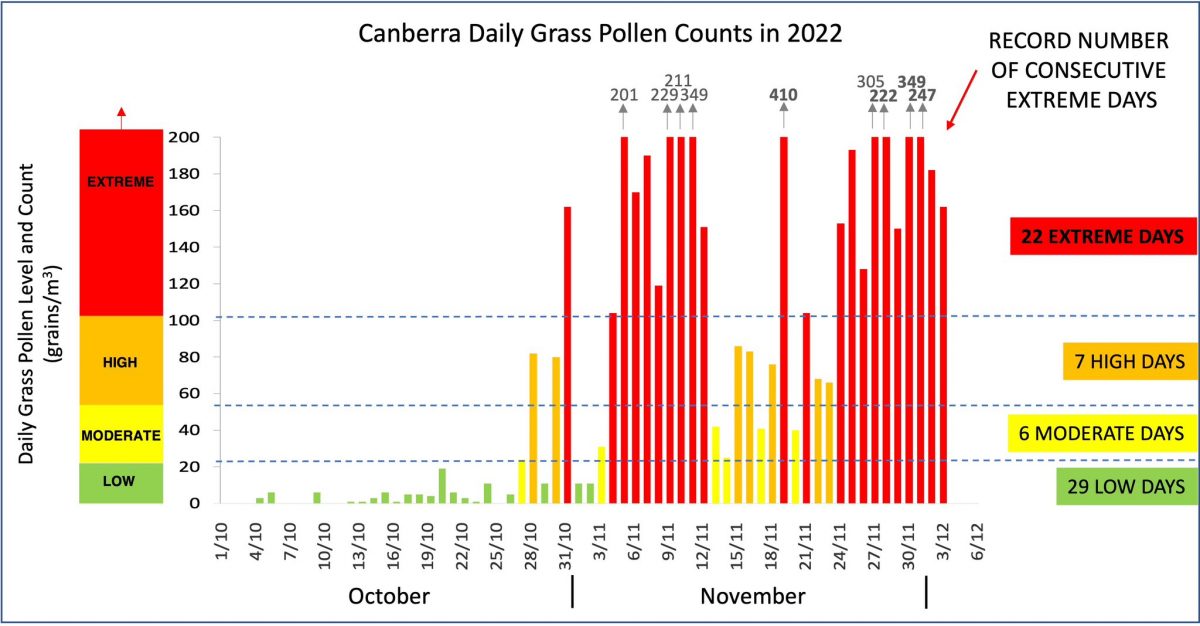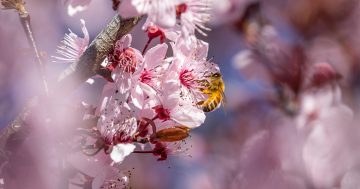
Staying on top of the mowing program proved difficult last year as wet weather hung around. Photo: Michelle Kroll.
Canberra has itched, sniffled, sneezed and coughed through a record pollen season, and it’s not going away anytime soon.
Since 24 November, there has been a never-before-seen consecutive run of days with an extreme pollen count, spelling misery for the region’s hay fever and asthma sufferers.
Professor Simon Haberle (aka, ‘That Pollen Guy’) heads up the Canberra Pollen Monitoring Program at the Australian National University (ANU) and describes it as “extraordinary”, if not entirely a surprise.
“It’s a new record for not only the number of consecutive days but also the sheer amount of grass pollen,” he says.
“We anticipated this would happen in these sorts of climate conditions, with La Niña bringing a lot of rain and green growth. If you look back over previous years, this grass is normally brown and burnt off by now.”
But before you look over at your neighbour’s lush lawn in disgust, the problem stems from rye grass, an introduced species covering many of Canberra’s open spaces. This puts out vast amounts of pollen every year between October and December.
Normally, it should be wrapping up now, but Dr Haberle says we should brace for the season to extend over Christmas into mid-January.
“We’re seeing a really strong, drawn-out season which will probably extend into the New Year. It’s very burdensome on how people are feeling at the moment.”
Dr Mary Bushell is an Assistant Professor of Pharmacy at the University of Canberra (UC) and says Canberra suffers from high pollen levels like few other places in Australia.
“We are far more likely to suffer hay fever due to the high to extreme grass pollen counts,” she says.
“It also depends on the weather, and this year the pollen that triggers hay fever is particularly high because of the wet spring we have had.”

Canberra extreme pollen levels, November 2022. Photo: That Pollen Guy, Twitter.
So apart from popping antihistamine pills and using nasal sprays and eye drops, are there any other options to make the rest of the year more bearable for those with allergies?
This year, the Therapeutic Goods Administration (TGA) approved the first new oral antihistamine in more than a decade. Called ‘bilastine’, it’s now available in pharmacies as a treatment for allergic rhinitis (hay fever). But it’s not quite a wonder drug.
“It works similarly to other oral non-sedating antihistamines that are already available and studies show it’s just as effective,’ Dr Bushell says.
“It works quickly, only needs to be taken once a day, and covers the taker for just over 24 hours. Essentially, it just adds an extra option for allergy sufferers.”
Beyond that, a specialist may recommend ‘allergen immunotherapy’ for people who have used the other treatments but still suffer from severe symptoms. This takes the form of injections under the skin or a tablet, spray or liquid that goes under the tongue.
“While a full course of treatment may take years, many people experience less or no symptoms to their trigger afterwards.”
The best cure is prevention.
“Recognising your triggers or allergens and avoiding them,” Dr Bushell says.
“For example, wearing wraparound sunglasses, showering after being outside, rinsing your eyes with water and your nose with a mix of salt and water.
“If your trigger is grass pollen, avoid being out in grassy areas and mowing and staying inside with the windows shut when the pollen count is high.
“There is no cure yet for hay fever, but most people can relieve symptoms with the current available treatments.”
















